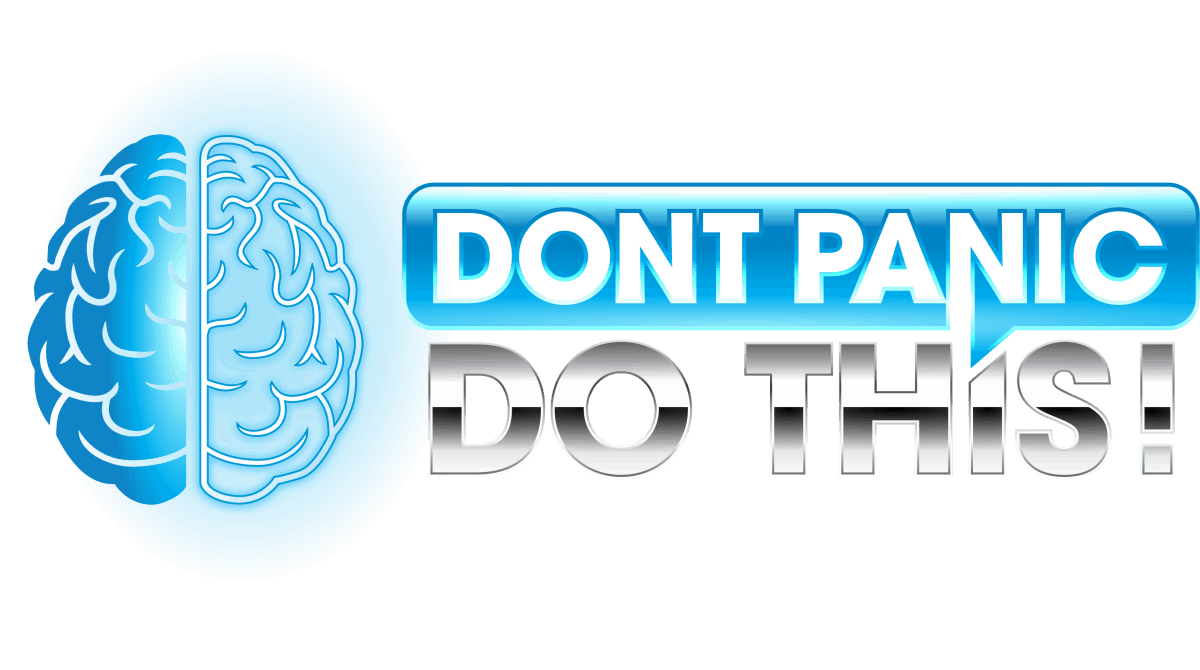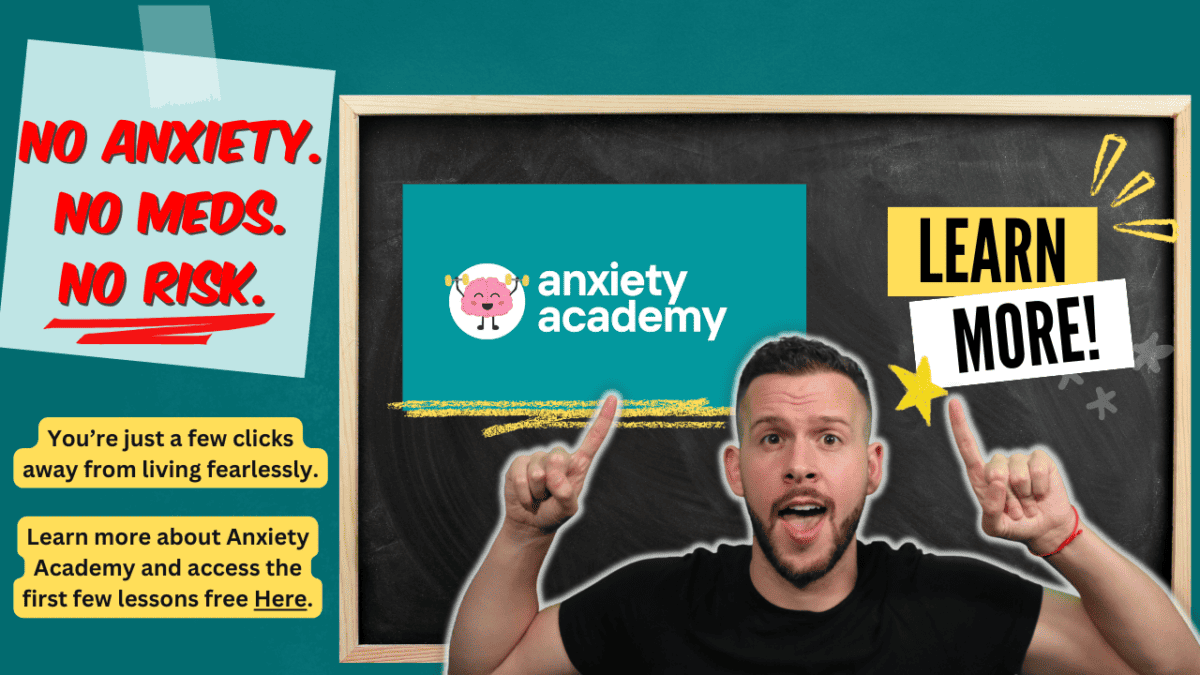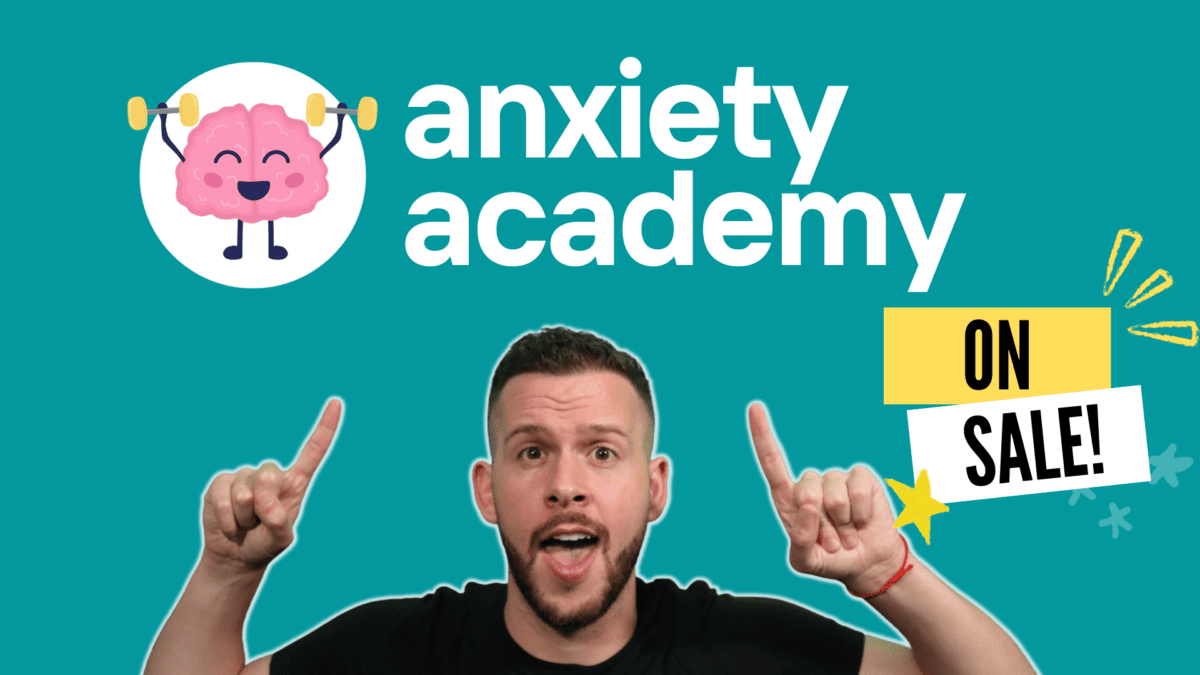If you’ve ever woken up gasping for air or with your heart pounding, you may have had a nocturnal panic attack. Nocturnal panic attacks are panic attacks that occur randomly in our sleep, rather than as the result of a conscious trigger while we’re awake. Here's how you can stop anxiety at night and prevent nocturnal panic attacks:
- Make Sure They’re Nocturnal Panic Attacks
- Decrease Stress and Anxiety in Your Everyday Life
- Cut Caffeine and Alcohol out of Your Diet
- Prepare in Advance for the Following Day
- Don’t go to Bed Hungry or After a Big Meal
- Establish a Regular Sleep Schedule and Bedtime Ritual
- Enjoy a Cup of Bedtime Stress Relief Tea
- Utilize an Essential Oil Diffuser with Lavender
- Minimize Screen Time an Hour Before Bed
- Set the Room to a Comfortable Temperature
- Try Using a Weighted Blanket for Anxiety at Night
- Fall Asleep to a Guided Meditation or Soundscape
- If You Have a Nocturnal Panic Attack, Get Up and Do Something
Like many of you, I’ve also suffered from nocturnal panic attacks, or sleep anxiety, in the past. I was able to eliminate anxiety at night by recognizing and correcting a handful bad habits that caused these sleep issues. With any luck, these steps will help you to stop nocturnal panic attacks as well.
Let's dive in!
Make Sure They’re Nocturnal Panic Attacks
Nocturnal panic attacks are, quite simply, panic attacks that occur while we are asleep. They may also occur just as we are drifting off to sleep. Any panic attack that occurs while awake and lucid, such as when we are lying in bed about to go to sleep, is a regular panic attack and should be treated as such. More information on how to stop a regular panic attack can be found here.
Nocturnal panic attacks share the same symptoms as regular daytime panic attacks. Waking up from sleep feeling short of breath or with a racing heart are the most common symptoms of nocturnal panic attacks. Before assuming that what you’re experiencing are nocturnal panic attacks, let’s try and rule out some other, similar-feeling possibilities.
- Sleep Apnea – A potentially serious issue where your breathing starts and stops in your sleep. This can be due to a number of factors like obesity or a narrowed airway.
- Sleep Terrors – Also called night terrors, this involves people screaming, flailing, and panicking while still asleep. This can be tied to sleepwalking.
- Sleep Paralysis – This state occurs when, while falling asleep or waking up, a person is mentally awake but physically unable to move. It can be a terrifying experience often described as having a weight sitting on one’s chest.
- Hypnic Jerks – in involuntary twitch that can occur as we are falling asleep. This often manifests itself as the feeling of falling or tripping in a dream.
Feel free to do some research on any of these, or talk to a medical professional for additional help figuring out the source of your nocturnal anxiety symptoms. If you’re ever worried that the feelings you’re experiencing could be tied to any sort of heart, breathing, or other medical issue, your doctor can run tests (such as utilizing a Holter monitor) to rule out anything serious.
Once you’re able to determine that it is, in fact, sleep anxiety that you’re experiencing, we can move on to the next step.
Decrease Stress and Anxiety in Your Everyday Life
The biggest challenge with nocturnal panic attacks is how randomly they occur, and how little control we actively have over them in the moment. After all, in dreamland, where people can fly and animals can talk, we’re definitely not in the right state of mind to recognize and stop a panic attack. Most of the time, we don’t even realize we’re having a nocturnal panic attack until we’re wide awake, out of breath, and terrified.
While we can’t always control what goes on in our asleep, we can be proactive about decreasing stress and anxiety while we’re awake. For starters, take some time to learn about what anxiety is and why we experience it. From there, consider decreasing your general anxiety levels through several of the major anxiety prevention methods. More specifically, this may involve fixing your diet, starting to exercise, and practicing meditation or yoga. A lot of the stress we carry during the day can impact the quality of sleep we get, so take this step seriously and try to cut your anxiety at the root.
You may also wish to speak to a mental health professional or therapist about your anxiety at night. As many of you know, our brain has a tendency to rehash old traumas as new nightmares. Having someone to talk to that can help you heal may have a positive impact on the quality of your sleep.
Cut Caffeine and Alcohol out of Your Diet
Caffeine, alcohol, and just about any other drug can wreak havoc on our mental health and sleep. Pay attention to the frequency of your nocturnal panic attacks and try to determine whether there is any link between your sleep anxiety and your use of drugs like caffeine and alcohol. For me, this was one of my biggest sources of nighttime anxiety.
I quit caffeine when I realized how dependent on it I had become and how anxious I felt without it. After a few days of cold turkey quitting caffeine, I had begun to experience extremely uncomfortable heart palpitations that lasted about two nights. If you’re a regular coffee drinker, try and take note of whether your caffeine intake has any effect on your nocturnal panic attacks. Do you get them more when you drink caffeine before bed? Or maybe you get them when you miss a few days and are having caffeine withdrawals?
Another drug I’ve linked to horrible sleep for myself is alcohol. I love a good beer as good as the next person, but boy does being drunk ruin the restfulness of my sleep. Depending on how much I drink and at what time, I typically wake up feeling anxious whenever the alcohol buzz wears off. When that happens, due to terrible “hangxiety”, I’ll toss and turn for hours before I can get back to bed. Additionally, I tend to have horrible dreams, and occasionally a nocturnal panic attack, a night or two after binge drinking. Strangely, I’ve found that IPAs tend to give me nightmares more than other types of drinks (although this is purely anecdotal and I have no scientific way to explain it). If you’re going to drink, make sure you hydrate as you go.
And, if you think caffeine and alcohol are bad for sleep, consider what any harder drug can do! I’m not saying you have to cut these things out of your life completely, but you should at least experiment a bit to see if you have less anxiety at night without them.
*Side note – The worst nightmares I’ve ever had in my life came after drinking Nyquil. I don’t know what’s in that stuff but I hope to never experience another Nyquil nightmare in my life.
Prepare in Advance for the Following Day
Panic attacks often occur when many smaller, unnoticed stressors add up over time. For many anxious people, nocturnal panic attacks might occur due to their preemptive worrying about the next day. Thoughts like, “What am I going to wear?” or “What will I make for breakfast?” can already be bouncing around an anxious person’s head as it hits the pillow. To manage this, it may be a good idea for some people to prepare in advance as much as possible for the following day.
This could be as simple as utilizing a calendar, planner, or sticky notes, to map out each task of the day. If you go to bed already having an outfit planned, a meal prepped, and a meeting set, it’s just that much less for you to overthink in your dreams.
Don’t go to Bed Hungry or After a Big Meal
If you’ve already read our article on how to diet for anxiety relief, you know the food we eat plays a massive role on our anxiety levels. In addition to making sure you’re eating a diet optimized for mental health, it’s also important to keep your eating habits in mind before bed.
Going to bed too hungry, or just after eating a large meal, can both be causes of nocturnal panic attacks. If we’re too hungry, our blood sugar levels can drop, causing our body to release epinephrine (adrenaline) that can make us feel anxious. If we’ve just eaten a large meal before bed, we can experience indigestion and gastrointestinal discomfort which can also cause anxiety at night; after all, the gut is often regarded as our “second brain.”
In my own experience, I’ve noticed that overeating before bed will absolutely ruin my sleep. I’ve gotten in from red eye flights late enough (or early enough) to make it to the hotel’s continental breakfast at 6am. After stuffing my face at the buffet and trying to sleep immediately afterward, I definitely realized what a mistake that is. Trying to sleep on a full, or upset stomach, can cause sleep anxiety similar to the way that caffeine or alcohol does. This is probably made worse by eating something you’re allergic to – like someone who is lactose intolerance eating cheese before bed.
I’d give yourself at least an hour between eating and sleeping. I like to brush my teeth after my last meal to discourage myself from sneaking any midnight snacks.
Establish a Regular Sleep Schedule and Bedtime Ritual
We evolved, like many other animals, to be cyclical creatures that rise with the sun and sleep with the moon. Today, many of us have crazy work schedules and keep the house lit up well after the sun’s down; this is fine, normal, and reflective of the times. If possible, however, you will likely benefit from trying to establish some sort of normalcy in your sleep schedule.
Whatever time it is that you wake up each morning and fall asleep each night, try and establish some sort of consistency from night to night. This helps our brain to predict the ideal time to fall asleep based on our own pre-determined habits; this way, the brain is better able to relax and transition into sleep-mode at an appropriate time. To amplify this effect, you may also wish to incorporate a “bedtime ritual,” or something you do each night before going to sleep. Again, this will just help your brain know when it’s time to power-down for bed. The next few steps are good examples of habits you might include in your own bedtime ritual.
Enjoy a Cup of Bedtime Stress Relief Tea
One of my favorite ways to take the edge off of mild stress and anxiety at night is with a cup of bedtime stress relief tea. I always recommend herbal, non-caffeinated teas over caffeinated alternatives; especially before bed. Ingredients like chamomile and passionflower are usually ideal for a good night’s sleep. Check out this article on the best tea for anxiety for my current favorites.
This is one of the simplest, and healthiest options for decreasing anxiety at night. For regular use, I would definitely opt for something mild and natural like a good herbal tea over other, less natural anxiety supplements or, even worse, a medication for sleep.
Utilize an Essential Oil Diffuser with Lavender
Like a good cup of herbal tea before bed, using an essential oil diffuser is another great potential component to any bedtime ritual. At the very least, an essential oil diffuser can make your room smell great. At best, oils like lavender have a long-standing and proven record of reducing anxiety and helping people to relax or sleep. I love these things so much, I literally just bought an essential oil diffuser for my cousin as a gift while he was recovering from surgery.
I typically recommend lavender for people with anxiety at night, since it’s such a classic anti-anxiety scent. However, if there is a certain smell that you personally associate with pleasant memories or relaxation (scents from your childhood, etc.) I believe that could work as well.
Minimize Screen Time an Hour Before Bed
One of the most commonly recommended tips for getting better sleep and reducing nocturnal panic attacks is to minimize screen time an hour before bed. It’s a well-documented fact that the blue light emitted by our phones, computers, and other screens, are harmful to our sleep. Such light can suppress the secretion of melatonin, messing with our circadian rhythm and causing all kinds of health issues down the road.
Do yourself a favor and limit, or stop, all screen time an hour or so before bed. This will help your brain to better prepare for sleep and have less anxiety at night.
I also recommend sleeping with your phone on silent. Maybe it’s a bit selfish of me, but nothing is important enough to wake me up from a dead sleep at 3am. I’ll read your text in the morning.
If you’re wondering what to do in that hour before bed without your phone, I recommend reading a book. Any kind of book will do, but this is when I would opt for a fiction book. Something fun and light to entertain you for a bit as your brain slowly powers down.
Set the Room to a Comfortable Temperature
Pretty simple, here. Make sure you’ve set the room to a comfortable temperature before going to sleep. Nothing is worse than waking up in the middle of the night in a sweat. If your body is uncomfortable, it could feasibly interpret that discomfort as a threat, causing nocturnal anxiety. I prefer to sleep with the room cold so that being under the blankets feels the maximum amount of comfortable. 68 degrees Fahrenheit is the correct temperature, I will not debate this (kidding!).
Try Using a Weighted Blanket for Anxiety at Night
Now that you've set the room to a nice and comfortable temperature, let's talk blankets. People with anxiety may benefit from using a weighted blanket. These are popular right now for helping people to decrease anxiety at night, so they could certainly be worth a try for dealing with nocturnal panic attacks.
Fall Asleep to a Guided Meditation or Soundscape
If you’re suffering from anxiety at night, you may benefit from listening to a guided meditation or soundscape as you fall asleep. These can be found for free on YouTube very easily; preference for meditation style or soundscape genre may vary. Some people like to listen to a soft voice talking them through a meditation, others may want to listen to whales.
I personally find the sound of rain to be supremely relaxing. When I sleep, I like to have some sort of dull, constant white noise in the background; like the sound of the ceiling fan whirring or the AC running. This, for me, helps to drown out any other sounds that might disturb me in my sleep or cause a nocturnal panic attack.
If You Have a Nocturnal Panic Attack, Get Up and Do Something
If you are unlucky enough to wake up from a nocturnal panic attack, do not fear. For most people, especially those familiar with daytime panic attacks, the symptoms will resolve themselves pretty quickly on their own. If not, just remember that you’re simply having a panic attack and will not die; it will likely be over within 3-10 minutes. Regain control of your breathing by inhaling for 6 seconds through your nose, and out for 6 seconds through your mouth.
With your panic attack under control, you still may feel a bit shaken up or restless and unable to sleep. If this is the case, no worries. Don’t toss and turn anxiously for hours. Instead, get yourself out of bed, get moving, and find something else to do with the time.
Take an early morning run on the treadmill, organize your closet, take a shower, start cooking breakfast, etc. Just get moving and get your mind off your anxiety. Backpedal a few of these steps and try to run through your bedtime ritual. When you’re feeling tired, relaxed, and ready to sleep again, you can give it another go.


